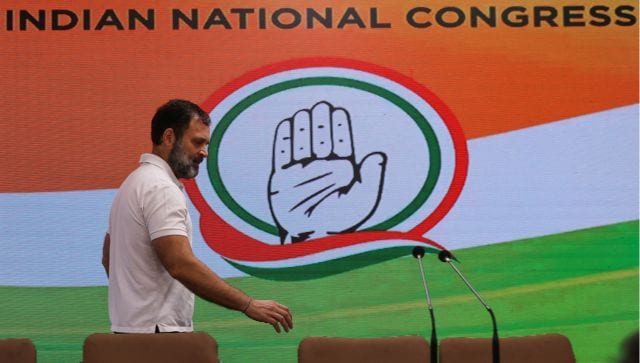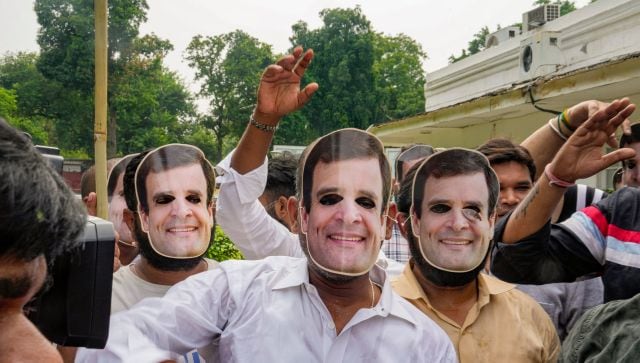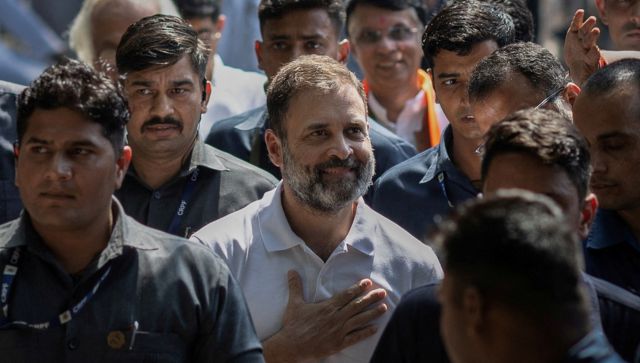The Supreme Court on Friday (4 August) stayed the conviction of Congress leader Rahul Gandhi in a 2019 criminal defamation case over his “Modi surname” remarks, clearing the way for the restoration of his Member of Parliament (MP) status. Pronouncing the verdict, a three-judge bench headed by Justice BR Gavai, as per Hindustan Times (HT), said: “No reason has been given by the trial judge for imposing maximum sentence, the order of conviction needs to be stayed pending final adjudication”. The Congress leader was disqualified as an MP after a court in Gujarat’s Surat convicted and sentenced him to two years in prison in the “Modi surname” remarks suit filed by Bharatiya Janata Party (BJP) MLA Purnesh Modi. Gandhi had reportedly asked at a rally in Karnataka’s Kolar in April ahead of the 2019 Lok Sabha polls: “How come all thieves have Modi as the common surname?” While Rahul Gandhi has got respite in one case, he is still facing at least a dozen defamation lawsuits filed mostly by the BJP and Rashtriya Swayamsevak Sangh (RSS) members across the country in the past few years. Moreover, there is another defamation case on the “Modi surname” remark ongoing in Jharkhand. Let’s take a closer look at the Jharkhand case and how Rahul Gandhi’s legal troubles are not yet over. Ranchi ‘Modi surname’ case Pradip Modi, an advocate, had filed a Rs 20 crore defamation case against Rahul Gandhi in Jharkhand’s Ranchi over his 2019 “Modi surname” remarks. In early July, the Jharkhand High Court directed that no coercive action be taken against the former Congress chief till 16 August in the case. The High Court also exempted Gandhi from appearing before the trial court in this case. This came after the Congress leader moved the Jharkhand HC challenging a May order by the Ranchi MP-MLA court that had directed him to appear in person in the defamation case, as per Scroll. [caption id=“attachment_12959772” align=“alignnone” width=“640”] The Supreme Court has paved the way for the restoration of Rahul Gandhi’s MP status. Reuters File Photo[/caption] “We informed the court that our client was ready to give an undertaking that he would neither dispute his identity during the court proceeding nor would raise objection if witnesses are examined in his absence and in the presence of his counsel. After the hearing, the court ordered no coercive action and has sought reply from the complainant,” Gandhi’s lawyer Deepankar Roy said at the time, as per HT. Earlier in June, a special court in Ranchi had allowed the Congress leader’s plea seeking 15-day time for appearance before it in the case. After Gandhi’s Modi remarks in Karnataka in 2019, defamation cases were filed against him in several parts of the country. On 4 July, the Patna High Court had put a stay on the proceedings in the criminal defamation case against Gandhi filed by BJP MP Sushil Kumar Modi over the surname remarks till 12 January 2024, reported LiveLaw. Series of cases against Rahul Gandhi In April, Satyaki Savarkar, grandnephew of Vinayak Damodar Savarkar, filed a criminal defamation complaint against the Congress leader in Pune for making “false, malicious and wild allegations” about the Hindutva icon during his trip to the United Kingdom earlier this year. Kamal Bhadoria, who claims to be an RSS volunteer, filed a defamation case against
Rahul Gandhi
at the Haridwar CJM court in March over his alleged comments in Kurukshetra made during the Bharat Jodo Yatra, where he called the RSS “21st century Kauravas”, reported Indian Express. BJP’s Krishnavadan Brahmbhatt lodged a criminal defamation suit in an Ahmedabad court in May 2019 against Gandhi for making “derogatory” remarks against Amit Shah at an election rally in Jabalpur by allegedly calling him a “murder accused”. As per Indian Express, the trial in this case has been put on hold. In April 2019, Ahmedabad District Co-Operative (ADC) Bank and its chairperson Ajay Patel filed a criminal defamation case against Gandhi for “defaming” Amit Shah by allegedly accusing him of money laundering during the 2016 demonetisation. Shah was a director at the ADC Bank at the time. Another case was filed against Gandhi by BJP supporter Mahesh Shrishrimal in 2018 over his “commander-in-thief” remark about Prime Minister Narendra Modi. The complainant claimed the statement made in connection with the Rafale fighter jet deal had “hurt the sentiments of the PM’s supporters”. On Tuesday (2 August), the Bombay High Court extended the interim relief granted to Gandhi from appearing before a magistrate court in the case till 26 September, reported The Hindu. In 2018, RSS worker Dhrutiman Joshi lodged a criminal defamation case against Gandhi and CPI(M) leader Sitaram Yechury before a Sewri court in Mumbai for allegedly trying to link the RSS with journalist Gauri Lankesh’s murder, reported Indian Express. [caption id=“attachment_12959802” align=“alignnone” width=“640”]
The Supreme Court has paved the way for the restoration of Rahul Gandhi’s MP status. Reuters File Photo[/caption] “We informed the court that our client was ready to give an undertaking that he would neither dispute his identity during the court proceeding nor would raise objection if witnesses are examined in his absence and in the presence of his counsel. After the hearing, the court ordered no coercive action and has sought reply from the complainant,” Gandhi’s lawyer Deepankar Roy said at the time, as per HT. Earlier in June, a special court in Ranchi had allowed the Congress leader’s plea seeking 15-day time for appearance before it in the case. After Gandhi’s Modi remarks in Karnataka in 2019, defamation cases were filed against him in several parts of the country. On 4 July, the Patna High Court had put a stay on the proceedings in the criminal defamation case against Gandhi filed by BJP MP Sushil Kumar Modi over the surname remarks till 12 January 2024, reported LiveLaw. Series of cases against Rahul Gandhi In April, Satyaki Savarkar, grandnephew of Vinayak Damodar Savarkar, filed a criminal defamation complaint against the Congress leader in Pune for making “false, malicious and wild allegations” about the Hindutva icon during his trip to the United Kingdom earlier this year. Kamal Bhadoria, who claims to be an RSS volunteer, filed a defamation case against
Rahul Gandhi
at the Haridwar CJM court in March over his alleged comments in Kurukshetra made during the Bharat Jodo Yatra, where he called the RSS “21st century Kauravas”, reported Indian Express. BJP’s Krishnavadan Brahmbhatt lodged a criminal defamation suit in an Ahmedabad court in May 2019 against Gandhi for making “derogatory” remarks against Amit Shah at an election rally in Jabalpur by allegedly calling him a “murder accused”. As per Indian Express, the trial in this case has been put on hold. In April 2019, Ahmedabad District Co-Operative (ADC) Bank and its chairperson Ajay Patel filed a criminal defamation case against Gandhi for “defaming” Amit Shah by allegedly accusing him of money laundering during the 2016 demonetisation. Shah was a director at the ADC Bank at the time. Another case was filed against Gandhi by BJP supporter Mahesh Shrishrimal in 2018 over his “commander-in-thief” remark about Prime Minister Narendra Modi. The complainant claimed the statement made in connection with the Rafale fighter jet deal had “hurt the sentiments of the PM’s supporters”. On Tuesday (2 August), the Bombay High Court extended the interim relief granted to Gandhi from appearing before a magistrate court in the case till 26 September, reported The Hindu. In 2018, RSS worker Dhrutiman Joshi lodged a criminal defamation case against Gandhi and CPI(M) leader Sitaram Yechury before a Sewri court in Mumbai for allegedly trying to link the RSS with journalist Gauri Lankesh’s murder, reported Indian Express. [caption id=“attachment_12959802” align=“alignnone” width=“640”] Congress workers celebrate after SC’s relief to Rahul Gandhi in the 2019 criminal defamation case. PTI[/caption] The same year, Navin Jha, a BJP worker, moved the CJM court in Ranchi against Gandhi for allegedly making “derogatory” remarks about the saffron party at an internal meeting of the All India Congress Committee (AICC). A criminal defamation suit was filed by RSS worker Anjan Kumar Bora against the Congress leader before a CJM Kamrup court in Guwahati in 2016 for allegedly making “false” statements to “defame” the RSS. While visiting the area in December 2015, Gandhi had alleged that the RSS workers did not let him enter a monastery in Barpeta. However, monastery officials had denied his claims, as per Indian Express. Rajesh Kunte, a Bhiwandi resident, who claims to belong to RSS, filed a defamation complaint against Gandhi before a Bhiwandi civil and criminal court in Maharashtra’s Thane in 2014. He claimed that the Congress leader’s alleged statement that Mahatma Gandhi was “killed” by people from the RSS uttered during a 2014 election rally had harmed the reputation of the Hindutva organisation. ALSO READ:
Modi surname defamation case: Will Rahul Gandhi return to Parliament on Monday?
What has the Supreme Court in the Surat case? The apex court observed that Rahul Gandhi’s remarks were not in “good taste”, “and the petitioner ought to have been more careful in making speeches”, reported NDTV. The Supreme Court also pointed out that the trial court in Surat had highlighted Gandhi’s “criminal antecedents”. Responding to this, senior advocate Abhishek Manu Singhvi, representing Rahul Gandhi, told the top court: “They have cited 13 cases but no conviction in any of those cases. How are these cited for criminal antecedents? I am not a hardened criminal…No conviction despite…look at the chart. Full of cases filed by BJP karyakartas, but never any conviction”. Earlier in July, while refusing to stay the Congress leader’s conviction in the case, the Gujarat High Court had noted “… as many as ten criminal cases are pending against the applicant”. Meanwhile, reacting to the Supreme Court’s reprieve, Gandhi wrote on X, formerly known as Twitter, that his duty of “protecting the idea of India” remains the same. With inputs from agencies
Congress workers celebrate after SC’s relief to Rahul Gandhi in the 2019 criminal defamation case. PTI[/caption] The same year, Navin Jha, a BJP worker, moved the CJM court in Ranchi against Gandhi for allegedly making “derogatory” remarks about the saffron party at an internal meeting of the All India Congress Committee (AICC). A criminal defamation suit was filed by RSS worker Anjan Kumar Bora against the Congress leader before a CJM Kamrup court in Guwahati in 2016 for allegedly making “false” statements to “defame” the RSS. While visiting the area in December 2015, Gandhi had alleged that the RSS workers did not let him enter a monastery in Barpeta. However, monastery officials had denied his claims, as per Indian Express. Rajesh Kunte, a Bhiwandi resident, who claims to belong to RSS, filed a defamation complaint against Gandhi before a Bhiwandi civil and criminal court in Maharashtra’s Thane in 2014. He claimed that the Congress leader’s alleged statement that Mahatma Gandhi was “killed” by people from the RSS uttered during a 2014 election rally had harmed the reputation of the Hindutva organisation. ALSO READ:
Modi surname defamation case: Will Rahul Gandhi return to Parliament on Monday?
What has the Supreme Court in the Surat case? The apex court observed that Rahul Gandhi’s remarks were not in “good taste”, “and the petitioner ought to have been more careful in making speeches”, reported NDTV. The Supreme Court also pointed out that the trial court in Surat had highlighted Gandhi’s “criminal antecedents”. Responding to this, senior advocate Abhishek Manu Singhvi, representing Rahul Gandhi, told the top court: “They have cited 13 cases but no conviction in any of those cases. How are these cited for criminal antecedents? I am not a hardened criminal…No conviction despite…look at the chart. Full of cases filed by BJP karyakartas, but never any conviction”. Earlier in July, while refusing to stay the Congress leader’s conviction in the case, the Gujarat High Court had noted “… as many as ten criminal cases are pending against the applicant”. Meanwhile, reacting to the Supreme Court’s reprieve, Gandhi wrote on X, formerly known as Twitter, that his duty of “protecting the idea of India” remains the same. With inputs from agencies
Rahul Gandhi gets reprieve in one ‘Modi surname’ case. But there are more pending
FP Explainers
• August 4, 2023, 17:36:20 IST
While the Supreme Court has stayed Rahul Gandhi’s conviction in Gujarat’s ‘Modi surname’ remarks case, there are still at least two more, filed in Jharkhand and Bihar each. The Congress leader is also facing around a dozen defamation suits filed across the country
Advertisement
)
End of Article